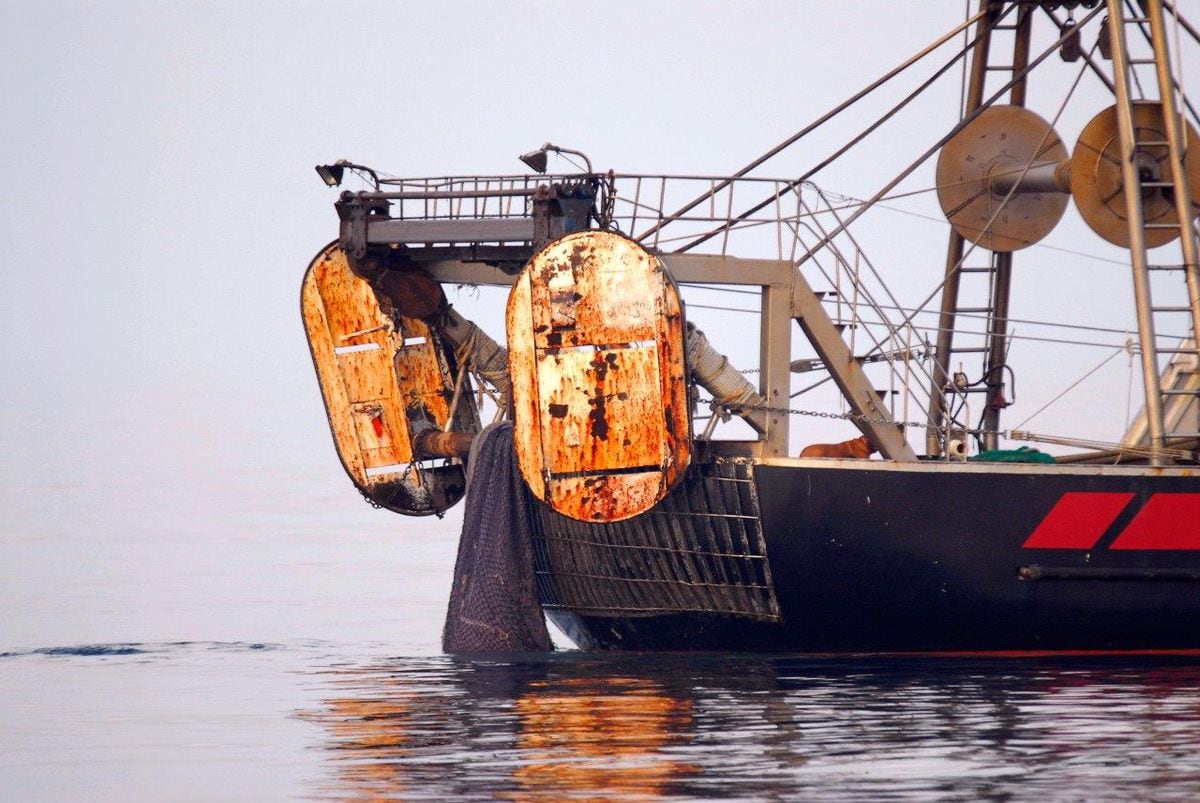“What would people think if a company were allowed to clear-cut trees in a national park?” asks Enric Sala, founder of Pristine Seas—a National Geographic initiative dedicated to protecting the environment—when talking about bottom trawling that continues to develop in many of the world's protected areas. The European Commission and the main environmental organizations have put the spotlight on this non-selective fishing technique, which consists of dragging weighted nets along the bottom. This week activists have won a victory: Greece has announced that it will ban this technique in all of its marine protected areas in 2030 - in the case of national parks this ban will be brought forward to 2026.
It is the first European country to announce this commitment, and to defend the measure the Greek Government argues that this practice "is the greatest threat to marine habitats." Vetoing it is “the most effective measure for the preservation of marine biodiversity, the restoration of marine ecosystems and the promotion of sustainable fishing practices,” explained the Executive of this country during the Our Ocean Conference, which was held in Athens. this week.
“It's common sense,” Sala says of the ban. “It makes no sense to allow industrial fishing, and the most aggressive of them is bottom trawling, in protected areas,” adds this researcher who has several published works on the carbon dioxide (CO₂) that is released when removing the sediments of the seabed. “The nets plow the seabed, removing sediments and releasing CO₂; More than half of what is released later ends up in the planet's atmosphere,” adds Sala. That is, it ends up contributing to the overheating of the planet.
But that is only one side of this environmental problem, the other is the destruction of marine habitats. Therefore, as the Greek Government has explained, in its case “the ban on bottom trawling in marine protected areas will significantly increase the protection of many vulnerable species, such as posidonia and corals, as well as many benthic ecosystems. and vulnerable habitats.”
Not only Greece thinks this way, the European Commission presented a little over a year ago an action plan for “protection and restoration of marine ecosystems for sustainable and resilient fishing.” In that document it was highlighted that “bottom trawling” is “one of the most widespread and harmful activities for the seabed and its habitats.” In its plan – in which Brussels also stressed that the oceans and their sediments are an important “carbon sink” – States were asked to “progressively eliminate bottom trawling in all marine protected areas by no later than 2030″. And all countries had to present a roadmap in this regard before April 2024.
“Very few countries have presented this roadmap,” says Tatiana Nuño, from the organization Seas At Risk, which follows the ocean protection policies applied by the EU from Brussels. Nuño applauds Greece's announcement: “she is responding to the Commission's call and opens the way for everyone to do so.” But it recognizes that in most countries coordination problems are emerging between the ministries of the environment — more inclined to follow the Commission's recommendations to veto trawling in protected areas — and those of fisheries — more focused on defending the interests of the sector. These conflicts are accentuated in a context of “reaction against environmental regulations” such as the one that is being experienced in part of the EU and with European elections just around the corner, Nuño believes.
Information is the first tool against climate change. Subscribe to it.
Subscribe
This activist adds that the same coordination problems are occurring in Spain, where the Ministry for the Ecological Transition is working on this roadmap while the Minister of Agriculture, Fisheries and Food, Luis Planas, has defended on several occasions the fishing of drag. The problem is that the Brussels plan from a year ago did not impose the veto from 2030 through a rule, but instead urged the States to be the ones to propose the measures to be adopted with that horizon. “The Commission has that objective for 2030, but the prohibition is not in a law,” Sala summarizes. Although what has existed since the late nineties of the last century is a directive on protected spaces that obliges governments to avoid damage to biodiversity in these areas.
This week the organizations Marine Conservation Society, Oceana and Seas At Risk have released a report highlighting that bottom trawling is practiced in 90% of the EU's marine protected areas. The three organizations call on the EU to take tougher measures against countries that allow it. According to the calculations of the technicians of these NGOs, in the seven European countries analyzed, 4.4 million hours of apparent bottom trawling were allowed in marine protected areas between 2015 and 2023. The States studied are Denmark, Germany, Ireland , Netherlands, Portugal, Spain and Sweden. The Netherlands is the country that accumulates the highest number of hours of bottom trawling fishing, followed by Germany, Denmark and Spain.
“The results of the analysis reveal, once again, the magnitude of bottom trawling in Spain, which negatively affects the state of the ocean and fishermen,” says Oceana marine scientist in Europe, Silvia García. “Spain continues to ignore current regulations, allowing this form of destructive fishing in protected marine areas. If it wants to meet its sea protection goals for 2030, Spain must ban trawling in protected enclaves once and for all.”
_

